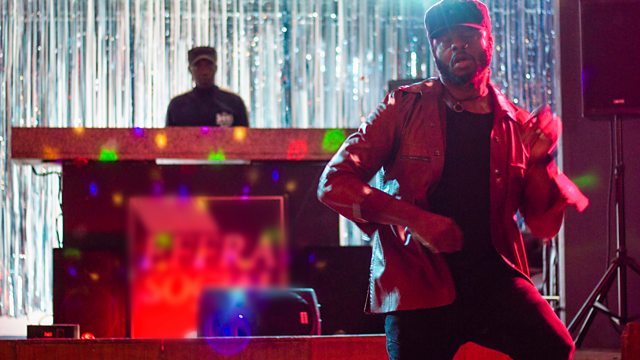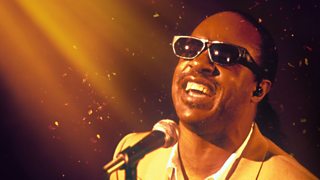
Rodney P's Jazz Funk
UK rap legend Rodney P reveals the origins of the jazz-funk movement, the very first home-grown black British music culture, inspired by the avant-garde American music of the 70s.
UK rap legend Rodney P reveals how the first generation of British-born black kids was inspired by the avant-garde musical fusions of black America in the 70s to lay the foundations of modern-day multiculturalism by creating the first black British music culture with the jazz-funk movement.
Jazz funk resists any simple description. It’s a scene, not a genre; an attitude, not a sound; a movement, not a fashion. In this film – the first to deconstruct, explain and contextualise this most British of underground music genres – we show the importance of jazz funk as the very first home-grown black British music culture, a world created by the first generation of British-born black kids who were determined to make a space for self-expression that they could truly call their own. To understand how black British culture has gone on to have such deep impact on youth culture in Britain and around the world, you need to understand jazz funk.
Rodney discovers how the scene emerged out of the cultural void of the early 70s when the first generation of British-born black kids, the children of Windrush generation parents who had arrived in Britain in the 50s and 60s, were starting to come of age only to find that there was nothing to reflect their new cultural identity. They’d been born here, gone to school here and grown up in the same working-class inner-city neighbourhoods as their white friends. But it was not until they entered their teenage years that the lack of a culture that spoke to them became apparent. That all changed with the arrival of American DJ Greg Edwards, the legendary host of Capital Radio’s Soul Spectrum, one of only two radio shows that played black music on legal radio in the 70s.
As new clubs sprang up around these new sounds, the culture split into two scenes - an older and mainly white scene growing in the south east suburbs of Kent and Essex, based on the more commercial end of the soul, jazz and funk sound, and a younger, more multicultural movement in London, built around deeper and more experimental music, giving birth to a wildly creative and expressive dance culture which was both inspired by, and inspirational to, the music.
Rodney meets key musicians like Lee John, lead singer of chart-topping jazz-funk group Imagination, and Kenny Wellington, founding member of Light of the World, one of the key acts of the Brit funk movement, who were inspired by those American jazz and funk artists to create a faster, rawer and uniquely British sound which went on to influence the New Romantics and the other cultures that came out of early 80s Britain.
Morghan Khan, one of the first black British superproducers, tells Rodney that he was determined to create a roster of black British artists, and Rodney also discovers the deep bonds that emerged between young marginalised black clubbers and the underground gay scene as both communities fought to express themselves on their own terms and have their voices heard. Although the jazz-funk scene created the first commercial platform for a generation of DJs, dancers, artists and clubbers, it was eclipsed in the early 80s with the deluge of a new wave of youth culture movements. But long before the rave scene of the 80s or the global club culture of today, it was in the jazz-funk scene of the 70s that all-dayers, all-nighters, superclubs and superstar DJs first appeared.
With original performance from veteran jazz-funk dancers, dynamically cut with rare archive of their heyday, Rodney meets many of those who were at the heart of the scene - people like Cleveland Anderson, the first DJ to take London’s dancers and DJs on the road and a key mover in the alliance that the jazz-funk kids forged with the gay club scene, Carl Cox, the superstar DJ whose first gig was running a jazz-funk mobile disco, and Robert Elms, a central figure at the Blitz Club who was a soul boy before he was a New Romantic.
Last on
Music Played
-
![]()
Beggar & Co
London Town (feat. The Funk Jazz Collective)
-
![]()
Pharoah Sanders
The Creator Has A Master Plan
-
![]()
War
Slippin' Into Darkness
-
![]()
Isaac Hayes Movement
Disco Connection
-
![]()
Brass Construction
Movin'
-
![]()
Earth, Wind & Fire
Getaway
-
![]()
War
Flying Machine
-
![]()
Heatwave
Boogie Nights (Single Version)
-
![]()
Azymuth
Jazz Carnival
-
![]()
Idris Muhammad
Could Heaven Ever Be Like This
-
![]()
Ronnie Laws
Always There
-
![]()
James Mason
Sweet Power Your Embrace
-
![]()
Lonnie Liston Smith & The Cosmic Echoes
Expansions
-
![]()
Bombers
(Everybody) Get Dancin'
-
![]()
The Michael Zager Band
Music Fever
-
![]()
Bombers
(Everybody) Get Dancin'
-
![]()
The Real Thing
Boogie Down (Get Funky Now)
-
![]()
Roy Ayers Ubiquity
Evolution
-
![]()
Sex Pistols
God Save The Queen
-
![]()
Roy Ayers Ubiquity
Spirit of Doo Do
-
![]()
Freeez
Southern Freeez
-
![]()
�ᾱ‐T��Բ����Dz�
Hi-Tension (Original 12" Mix)
-
![]()
Central Line
Time For Some Fun
-
![]()
Beggar & Co
Somebody Help Me Out
-
![]()
Chick Corea
The Slide
-
![]()
Central Line
Nature Boy
-
![]()
Imagination
Body Talk
-
![]()
Linx
So This Is Romance
-
![]()
Loose Ends
Magic Touch
-
![]()
Spandau Ballet
Chant No. 1 (I Don't Need This Pressure On)
-
![]()
Light of the World
Midnight Groovin'
-
![]()
MFSB
Mysteries Of The World
Credits
| Role | Contributor |
|---|---|
| Presenter | Rodney P Edwards |
| Executive Producer | Jaimie D'Cruz |
| Editor | Serkan Nihat |
| Production Company | Acme Films |
Broadcasts
- Fri 24 Jul 2020 21:00
- Sat 25 Jul 2020 01:45
Featured in...
![]()
The Jazz Collection
A celebration of the finest jazz musicians and documentaries dedicated to the genre.


